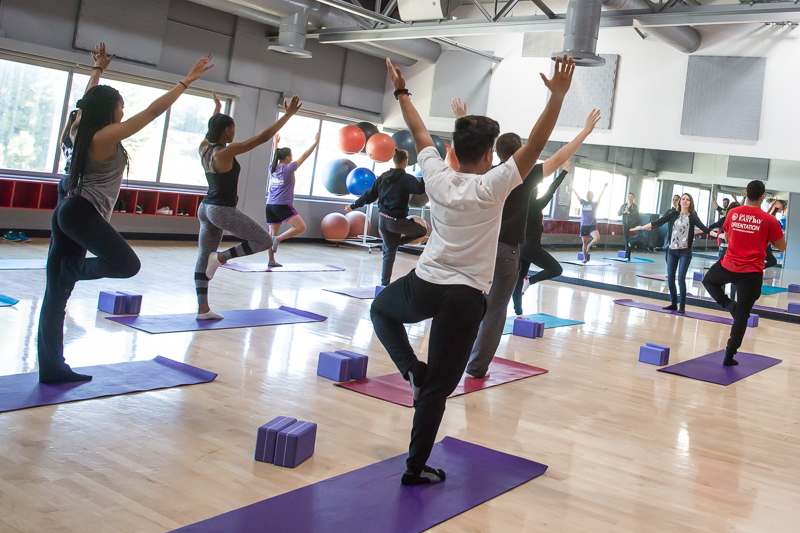Mark Twain once remarked, “Clothes make the man. Naked people have little or no influence in society.”
On a college campus, Twain’s quip could serve to good use, as many students presently dress in a manner that could be taken from a cross section of Snooki and Carrot Top’s closets.
Students can be seen dressed in pajama bottoms with slippers, shirts with obscene messages on the front and revealing attire that leaves little to the imagination.
Although students say they aim to dress comfortably while at school, dressing as if you are at home watching re-runs of Seinfeld on your couch instead of in a mature environment displays a lack of professionalism that is deficient in students today.
Of course, students should be able to dress following whatever fashion trends, lines or gods they choose, the issue is not in the style they like, rather it is in the lack of presentation that is placed in their choice of clothing.
The question that arises is if students really realize the importance of appearances and how the way they dress, even at school, can affect their success as America’s future professionals.
Style can be a life-affirming expression of your character and spirit, a conviction that you are worth knowing and looking at, and when done properly style can express to others that you present yourself well.
Since fashion can be asserted as a method of self-expression, a potential employer might see people who clothe themselves in slippers and belt-less, baggy pants as someone who does not take themselves seriously, thus someone who is less likely to take their job seriously.
Clothing is a form of communication; hence students should be communicating messages of intelligence and capability if they hope to make good impressions on potential employers and professors.
Studies show that people who dress more attractively are more likely to be hired, win more promotions and earn more money; accordingly students should approach college as they would a job.
Would a student go to a job interview with sweatpants and slippers on their feet? Would you hire someone who showed no effort to look presentable on a job interview?
Many would reply no. It becomes evident that there should be no distinction as to how college and a job are viewed.
In the same way that Coca-Cola outfits its bottles and iPod’s are clad in unique colors, our “packaging” is our walking resume and does affect how other people perceive us.
Getting dressed and ready for the day should be a priority in a successful college student’s life, as a personal dress code would make the transition from college life to professional life much easier.
For Public Relations major Sierra Hutto, the importance of a presentable exterior, she says, exemplifies her desires to be taken seriously in her academic environment.
As a student who is pursuing photography, as well as conducting small business endeavors while in school, Hutto says college is a venue of opportunity and approaches each day as potential job interviews.
“Dressing in a lazy way doesn’t let the other person respect you,” she said. “Coming to school in sloppy attire tells people you don’t care, and why would you want to express that?”
“You just never know who you might run into,” she said “So in that case, you should always be prepared.”
Business major Devon Mitchell says he feels more comfortable in his jerseys and sweatpants around campus because as opposed to Hutto, he views school as a relaxed societal environment.
“When I’m at school I don’t feel I am somewhere professional, so I dress casually,” said Mitchell. “School for me is a place to prepare me for the real world. I’m not in the real world yet, so I have time to relax in college until I get there.”
According to a 1998 study by Doctor of Psychology Lynne Isaacson, college students have lost the professionalism involved with education, as students do not feel that school is a place of work but rather a place to hang out and socialize with friends.
According to Isaacson, their unprofessional behavior is reflected in the manner in which they present themselves and consequently in how they view themselves.
A strong work ethic correlates with one’s perception and image of oneself, so when a student does not dress the part they are less likely to act the part.
Some might argue that we should have the freedom to dress however we want regardless of what people think, and that we should not judge people based on how they dress.
That is pretty ideal, but it is not practical in the real world.
People judge us based on how we look, and as unfortunate as it may be, it is a fact that we should acknowledge, especially as students who face a highly competitive job market upon graduation.
Reality is reality, and we cannot hide from it under the name of political correctness.
What we wear at home in our own privacy is our own business. We can wear neon cat-suits or Superman capes around the house, as no one can debate what you do in the seclusion of your own home.
Yet, when we go out and are being sized up everywhere we go, it becomes an issue because the way we dress expresses our respect, or lack thereof for ourselves.
Rest assured, a person who dresses the part, gets the part, and students on college campuses seem to be forgetting that.
Students need to realize that the opportunities begin the minute they start college, if not earlier, and that school should be viewed as their opportunity for betterment and not just a place to find more Facebook friends.
For the skeptic who finds Twain’s comments farfetched, remember that although material items cannot necessarily buy success, know that our attire is a reflection of who we are.
“Clothes don’t make a man,” said Herbert Harold Vreeland, “But clothes have got many a man a good job.”















